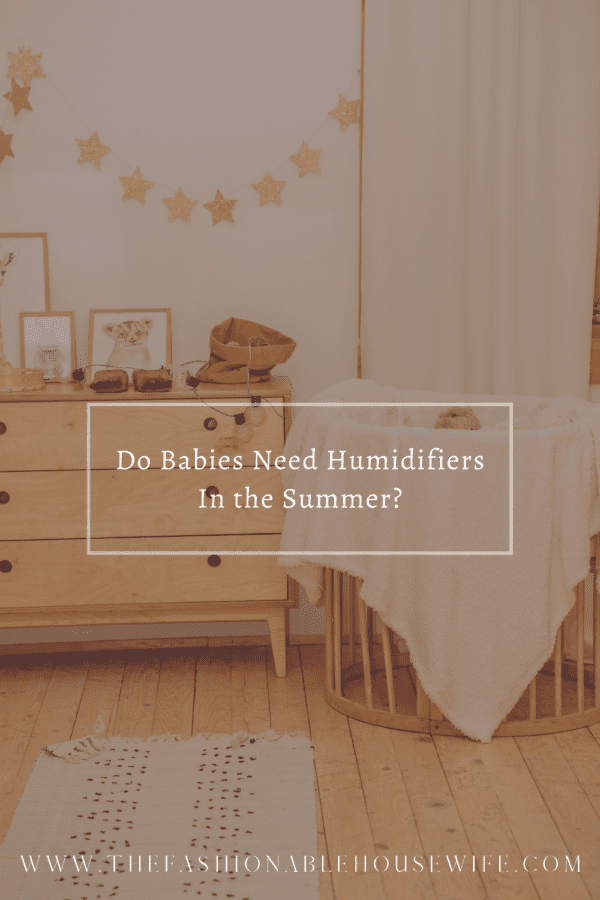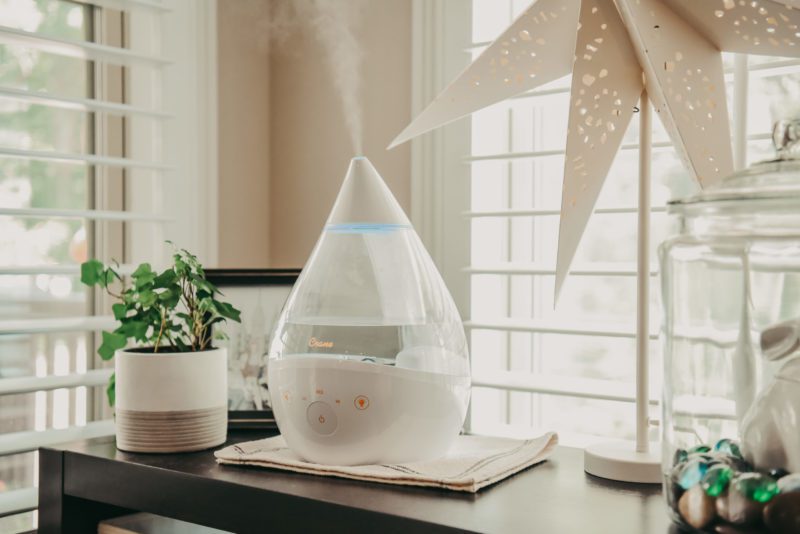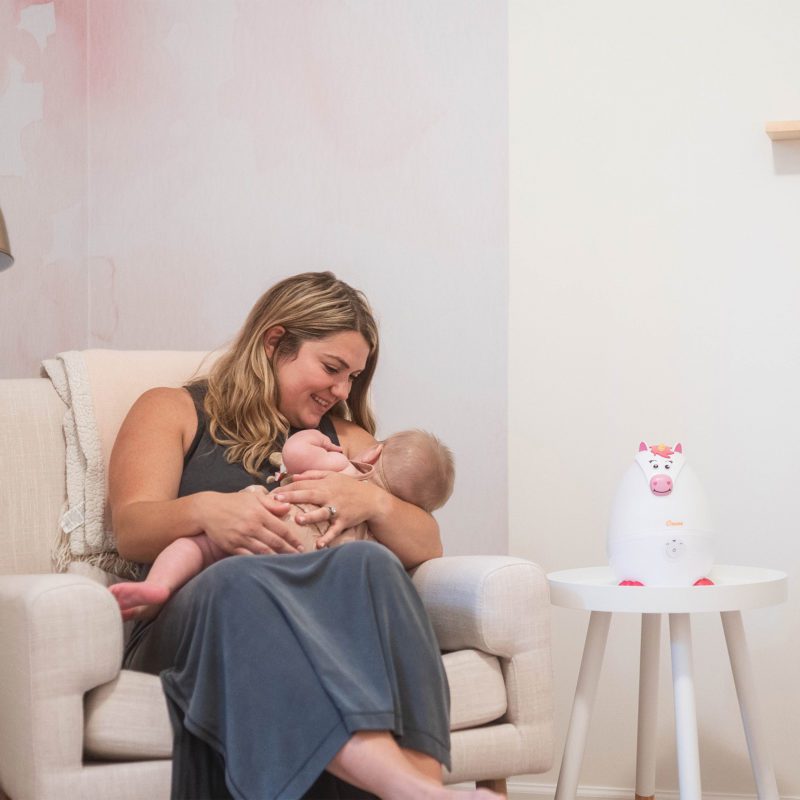
Do babies need humidifiers in the summer? Is it necessary for a baby to be using them at all? Are they safe? What are the best baby humidifiers on the market right now? As expecting parents, you may have some questions yourself. Luckily, we’ve done our research and can answer these questions, as well as any others that you might have about baby humidifiers in the summertime. Let’s get started!
What’s a humidifier?
A humidifier adds moisture to dry air, making breathing easier on a day-to-day basis and potentially helping relieve symptoms of chronic lung ailments such as allergies and asthma. All humidifiers have one basic thing in common: they add moisture to your home’s indoor air by means of water evaporation. A few types of humidifiers rely on heaters or ultrasonic waves instead, but most simply use a wick filter and fan to disperse water vapor into a room. The majority of humidifiers use tap water as their source; while that’s convenient, chlorine from city water treatment plants can leave an odd taste in your mouth when you breathe it in over long periods.
Why do babies need humidifiers in summer?
While humidifiers can help your family stay healthy all year round, they can be especially beneficial during the winter and summer months. Many of us may think that in warm weather a humidifier is not needed, but this is the time of year when our air conditioning is on the majority of the day making the air in our homes dry. That dry air that your air conditioning system is producing is keeping you cool but it is also removing the moisture from the air. Dry air causes inflamed sinuses and snoring. A humidifier is especially important because it can help baby breathe easier with the elements of the air. It also helps to keep baby’s skin from getting dry and flaky. It’s important to note that during the warmer months, you should be using a cool-mist humidifier to keep the room temperature cool.
Things to consider while purchasing a humidifier for babies

There are many humidifier options for babies available. While a traditional cool mist humidifier might be sufficient, there are other products on the market that have been specially designed for babies and children.
If you’re looking to purchase a humidifier specifically for your nursery, consider these three factors when making your decision:?

- Is it safe? Do not purchase a unit without reading any user reviews. Some unsafe products can cause burns and fire hazards. Make sure that you find something with a UL listing to ensure that it has been approved by Underwriters Laboratories (UL).
- Are there any harmful chemicals in use during the manufacturing process? Avoid purchasing anything that uses freon as it is highly toxic and dangerous to inhale.
- Do I need a pediatrician’s recommendation? You should consult your pediatrician before buying or using any new product for your baby.
- What features do I need? Features such as timers, nightlights, and automatic shut-off capabilities are important if you want to keep your baby from being exposed to loud noises or lights all night long.
- How often will I need to clean my humidifier? This depends on how much usage you plan on getting out of it. Most units require cleaning once every two weeks; however, some can go up to four weeks between cleanings depending upon usage level.
The most popular humidifier among parents is made by Crane Baby. Because they are made with babies in mind, they come in different sizes, colors, and even different animal designs.

Yes, babies need humidifiers in the summer. Therefore, it is wise to use a humidifier in the nursery. It will keep your baby’s skin hydrated and prevent them from getting rashes. It will also help prevent stuffy nose and congestion which are common during the summer months. The best part about using a humidifier in the nursery is that you can set it up near your baby’s crib so that they’ll get enough moisture throughout the day and night without disturbing their sleep cycle.



